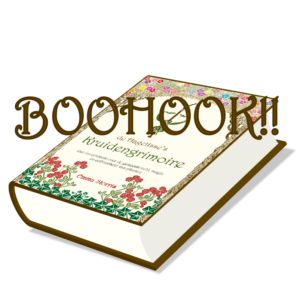
Believe it or not, there are people who think that peppermint is nothing but a white, round and flat piece of candy. Interestingly, many take this particular sweet after a meal. Is it instinct? The fact of the matter is that peppermint, Mentha piperita, stimulates digestion and is therefore a good after dinner choice.
Peppermint has more medicinal properties. In addition to its digestive effect, it has a beneficial effect on those organs doing the actual digesting. So beneficial in fact that it is an important natural remedy against painful gastrointestinal conditions such as ulcers.
But it can do a lot more. It affects headaches, respiratory diseases, flu and even menstrual complaints. And now I have still only touched upon a small selection of the uses of this plant.
The list of magical properties is also quite long. We can employ this plant as protection while traveling, to ensure health and to arouse lust. Additionally, peppermint has the magical ability to bring luck and money into your life. And did I mention it has a wonderful, refreshing taste?
Peppermint stands on a running rhizome. The rhizome has multiple nodes from which shoots emerge. As a result, peppermint is a strongly proliferating plant. It is advisable to keep this plant under control by limiting its growing area.
Its stems are square, slightly hairy and reddish-purple in colour. The leaves are ovate, opposite with a serrated margin. They are about 8 cm long and dark green in colour with sometimes a reddish-purple hue.
Peppermint has flowers that grow in racemes at the apex. The flowers are pink to lilac in colour and have four protruding stamens. However, the flowers have nothing to do with reproduction, because they are actually sterile.
The origins of peppermint are not entirely clear, but most botanists assume that it comes from a cross between Mentha aquatica, water mint, and Mentha spicata, spearmint. Peppermint may have been known since ancient times. We know for sure it has been with us for many centuries and has been used medicinally for just as long.
Peppermint repels mosquitoes. The essential oil can therefore be used in a vaporiser as an insect repellent.
All applications mentioned in this monograph also apply to Mentha arvensis, field mint.
Basic membership is free. A plant monograph contains:
It's not allowed to copy content of this website
and view hidden content
